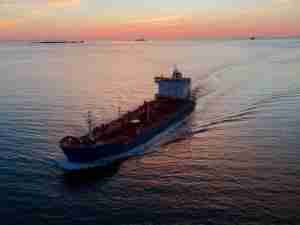The World Suffers a Vacuum of Leadership on Trade
By: The Editors | Jul 25 2016 at 02:00 AM | International Trade
The liberal economic order created in the second half of the 20th century has rarely seemed in such danger. The U.S. and Europe led the way in building that system but are no longer its champions.
The next U.S. president, it seems, will be either a timid, wavering defender of trade or an outright protectionist. Meanwhile, Britain’s decision to leave the European Union brings the prospect of new trade barriers within the EU, threatening wider disruption to what’s been up to now a model of economic integration.
The threat is not so much that there will be a headlong retreat from globalization. The forces pushing the other way—advancing technology, not least—are probably too powerful. Rather, it’s that dithering and incompetent governments will prevent a liberal economic order from realizing its full potential. Unless something changes, excellent opportunities for spreading prosperity farther and faster will be lost.
To seize those chances, leaders need to understand why globalization works, be willing to make the case to skeptical voters, and do more to support those workers whom international trade—or any other kind of economic disruption—threatens to leave behind.
Globalization is simply competition writ large. One of the few things economists know for sure—maybe the only thing—is that competition spurs innovation and efficiency, making products better and cheaper, and raising living standards in the aggregate. The wider the scope of this competition, the better. If barriers to trade and competition worked, living standards in the former Soviet empire would have vaulted past those in the U.S., leaving American consumers to gaze enviously on the good life, Cuban-style.
What about the rallying cry of the new protectionists—the idea that trade should be fair rather than free? Some rules are needed, of course, to avoid labor and environmental abuses, and to guard against predatory subsidies and exchange-rate policies. Past and prospective free-trade pacts aren’t lacking in such rules.
Yet the claim that trade with low-wage countries is unfair in and of itself is both economically specious and morally bankrupt. When goods are made at lowest cost, it’s a win-win for trading partners. And make no mistake: Free trade is anti-poverty. Denying countries such as China the right to sell Americans cheaper products makes both countries poorer—with the least well-off losing most.
It’s vital that political leaders make this case. When they bow to demands for trade barriers rather than propose help for workers whose jobs are displaced by competition, they abdicate their responsibility. The right approach is to provide effective safety nets, better vocational education, help with moving and retraining to find new jobs, employment subsidies for low-wage workers, and fairer, simpler taxes.
Get those things right, and you spread the benefits of domestic and foreign competition widely. Get those things wrong, and you only compound the problem by restricting trade—adding slower growth to a rigid labor market and systemic lack of economic opportunity.
One shouldn’t altogether despair about the lack of leadership currently on display in the U.S. and Europe. Whatever governments do, technology will continue to compress distances and drive competition. In Europe, mutual interest will dictate close economic connections between the U.K. and the rest of Europe, Brexit notwithstanding. Even President Donald Trump would recoil from the consequences of his promise to hike tariffs, once his supporters began to understand what that would do to their household budgets.
The real danger is in failing to grasp all the benefits that further economic integration has to offer. The prevailing mood jeopardizes opportunities such as the Trans-Pacific Partnership, the Transatlantic Trade and Investment Partnership, and a resuscitated World Trade Organization. Moving forward on any or all of those projects would boost confidence at a time when the world economy badly needs it. Leaders in the U.S. and Europe can and should do better.









